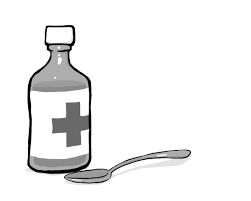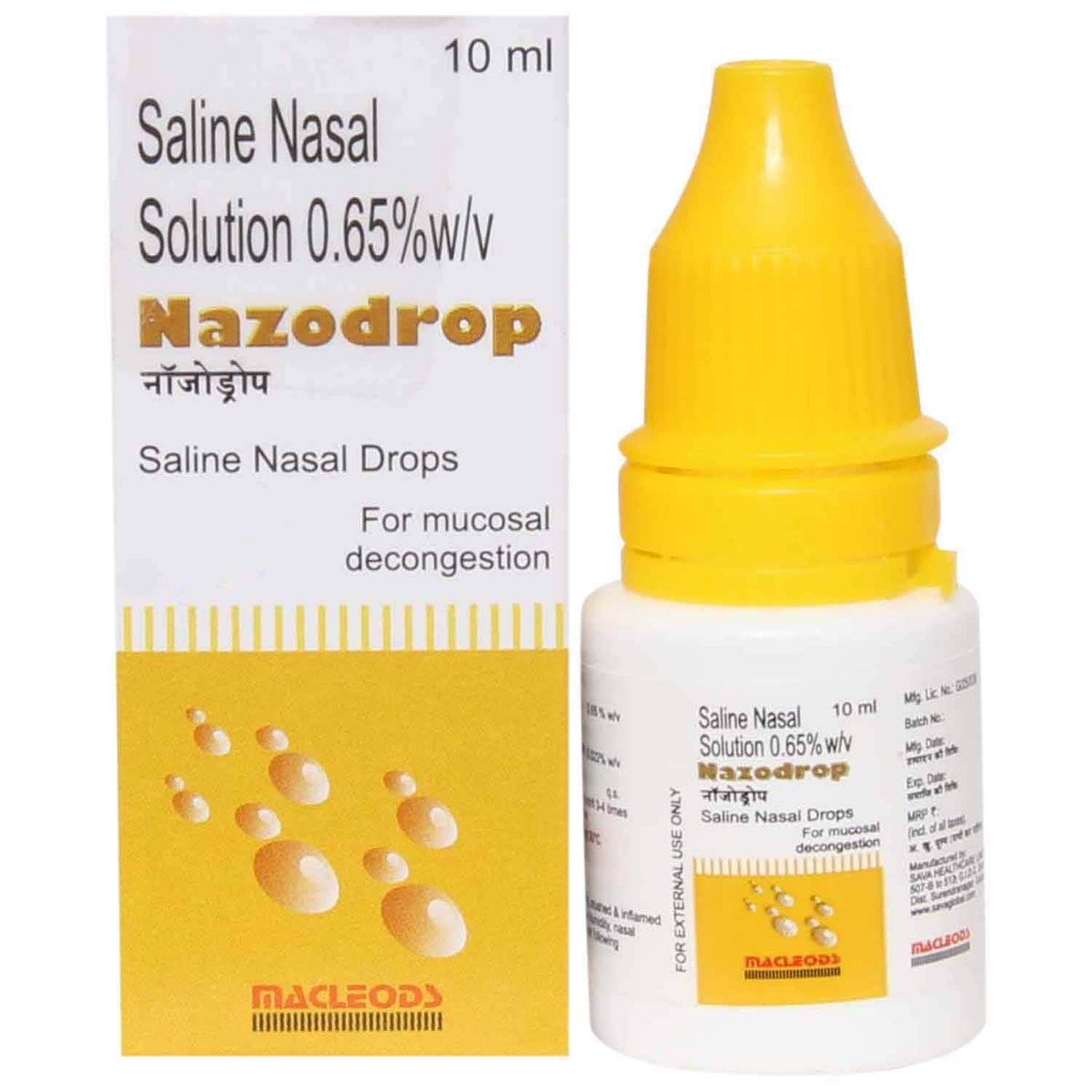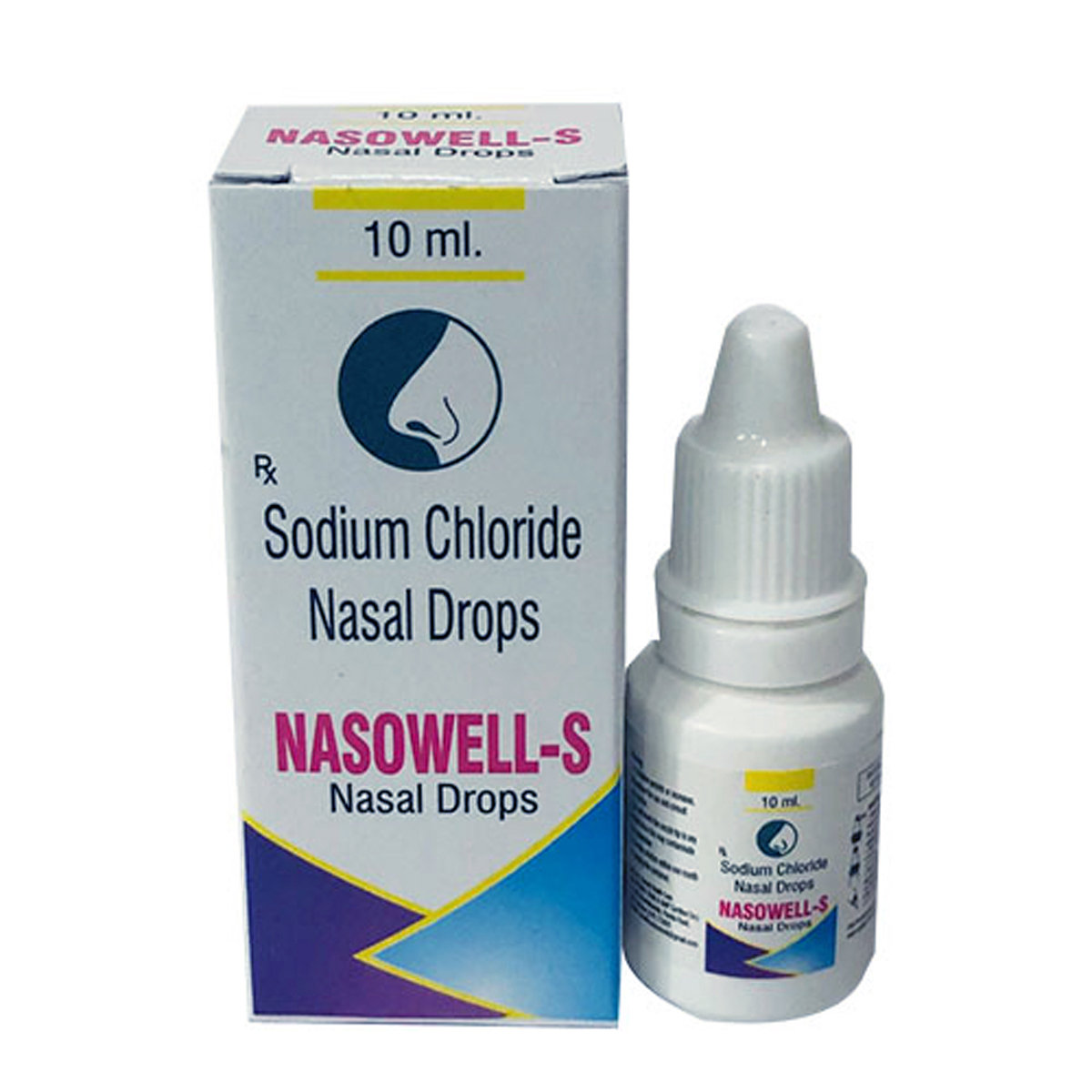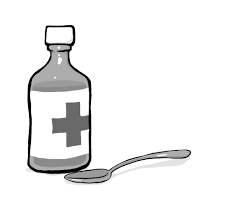Sodium Chloride
About Sodium Chloride
Sodium Chloride belongs to the group of medicines called nasal medications used to treat nasal congestion/ stuffy nose, nasal irritation, and dryness of the nasal passages associated with the common cold, flu, pollutants or allergies. Sodium Chloride may also be used as a pre-treatment for nasal steroid administration.
Sodium Chloride contains ‘Sodium Chloride’, an isotonic salt solution that moisturises the nose, and helps loosen, soften, and dissolve crusty or thick mucus. Thereby providing relief from stuffiness and making breathing easier.
Use Sodium Chloride as advised. In some cases, you may experience certain common side effects such as cough, sneezing, abnormal taste, and stinging sensation in the nose. Most of these side effects do not require medical attention and will resolve gradually over time. However, you are advised to talk to your doctor if the side effects persist or worsen.
Sodium Chloride is for nasal use only; do not consume it. Let your doctor know if you are allergic to any of the contents in Sodium Chloride. Consult your doctor before using Sodium Chloride if you are pregnant or breastfeeding. Sodium Chloride should be used in children only if advised by the doctor. To prevent contamination, avoid touching the tip of the container.
Uses of Sodium Chloride
Medicinal Benefits
Sodium Chloride belongs to the group of medicines called nasal medications used to treat nasal congestion/ stuffy nose, nasal irritation, and dryness of the nasal passages associated with the common cold, flu, pollutants or allergies. Sodium Chloride moisturises the nose and helps loosen, soften, and dissolve crusty or thick mucus. Thereby providing relief from stuffiness and making breathing easier. Sodium Chloride may also be used as a pre-treatment for nasal steroid administration.
Directions for Use
Storage
Side Effects of Sodium Chloride
- Cough
- Sneezing
- Abnormal taste
- Stinging sensation in the nose
Drug Warnings
Do not use Sodium Chloride if you are allergic to any of its components. Sodium Chloride is for nasal use only. Consult your doctor before using Sodium Chloride if you are pregnant or breastfeeding. Sodium Chloride should be used in children only if advised by the doctor. To prevent contamination, avoid touching the tip of the container. Avoid sharing Sodium Chloride with others to prevent the spread of infections.
Drug Interactions
Drug-Drug Interactions: No interactions found/established.
Drug-Food Interactions: No interactions found/established.
Drug-Disease Interactions: No interactions found/established.
Drug-Drug Interactions Checker List:
Safety Advice

Alcohol
cautionIt is not known if alcohol interacts with Sodium Chloride. Please consult your doctor if you have any concerns regarding this.

Pregnancy
cautionPlease consult your doctor if you are pregnant. Your doctor will decide if Sodium Chloride can be used by pregnant women or not.

Breast Feeding
cautionConsult your doctor if you are breastfeeding. Your doctor will decide if Sodium Chloride can be used by breastfeeding mothers.

Driving
cautionIt is not known if Sodium Chloride affects your ability to drive. Drive only if you are alert.

Liver
consult your doctorPlease consult your doctor if you have liver impairment/liver disease.

Kidney
cautionPlease consult your doctor if you have kidney impairment/kidney disease.

Children
cautionSodium Chloride is generally safe for use in children. However, it should be used in children only if advised by the doctor.
Habit Forming
Diet & Lifestyle Advise
- Add ginger to foods or tea as it contains anti-inflammatory compounds that can relax membranes in the airways and reduce cough, irritation, and swelling in nasal passages.
- Staying hydrated is vital for those with a cough or cold. Drink liquids at room temperature to relieve a runny nose, cough, and sneezing.
- The immune system is affected by stress and raises the risk of being sick. Do meditation, deep breathing, regular exercise, and try progressive muscle relaxation techniques to relieve stress.
- Avoid contact with known allergens (allergy-causing agents) such as pollen, dust, etc.
- Maintain personal hygiene and keep your surroundings clean.
Patients Concern
Disease/Condition Glossary
Nasal congestion: Nasal congestion, also known as a stuffy nose, occurs when nasal passages become swollen with excess mucus and fluid. Nasal congestion may be caused by hay fever, allergies, nasal polyps (non-cancerous growths), benign nasal passages tumours, environmental irritants, or a long-lasting sinus infection. It may also be triggered by tobacco smoke, perfume, or a disease.
FAQs
Sodium Chloride moisturises the nose and helps loosen, soften, and dissolve crusty or thick mucus. Thus, it provides relief from stuffiness and makes breathing easier.
You are recommended to use Sodium Chloride for as long as your doctor has advised it. However, if the condition persists or worsens even after using Sodium Chloride for three days, please consult a doctor.
Avoid sharing Sodium Chloride with others, as it might spread infections or diseases from one person to another.
You may not be on a dosing schedule while using Sodium Chloride as it is intended for use when needed. However, if you missed the dose, use it as soon as you remember. Avoid doubling doses.


